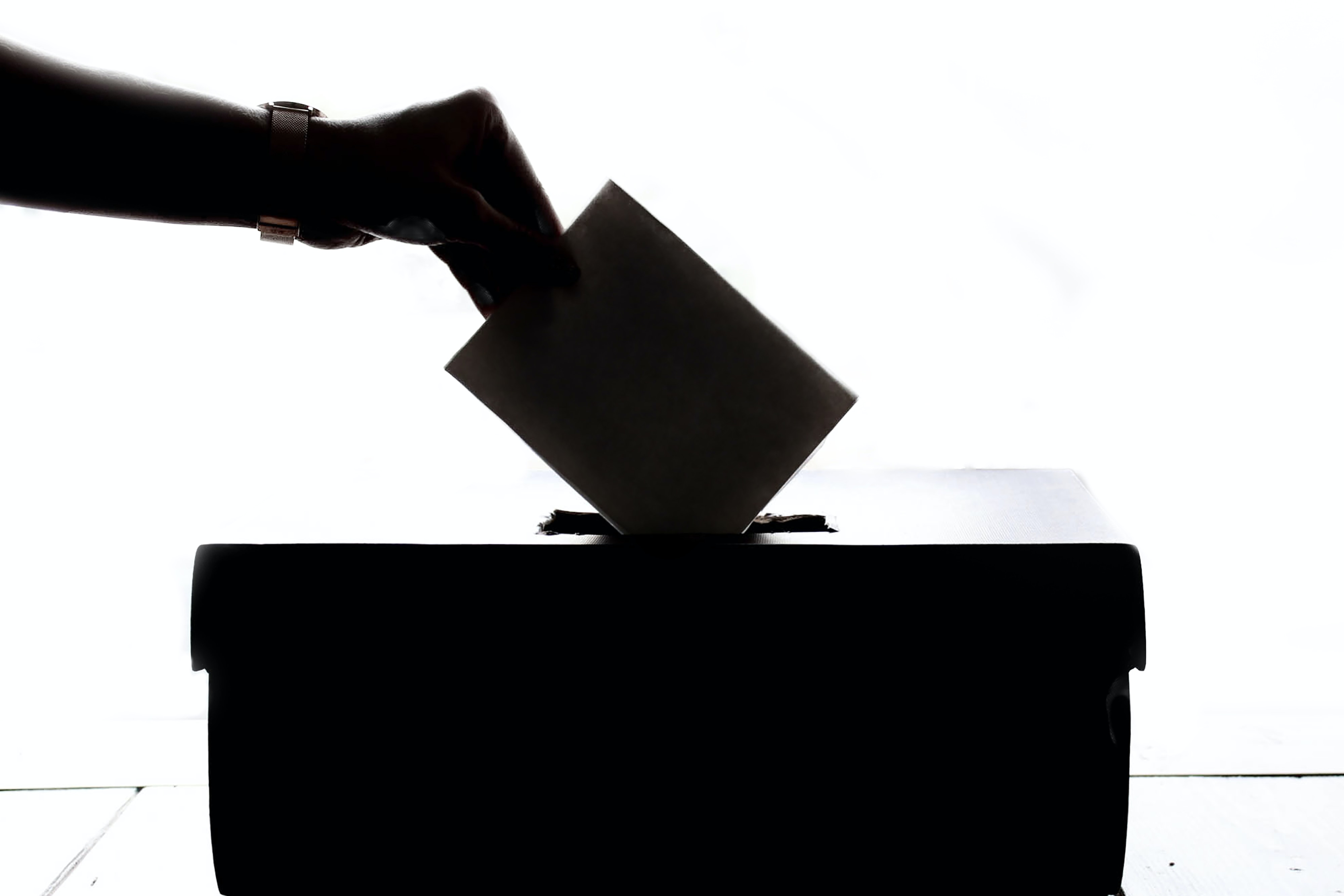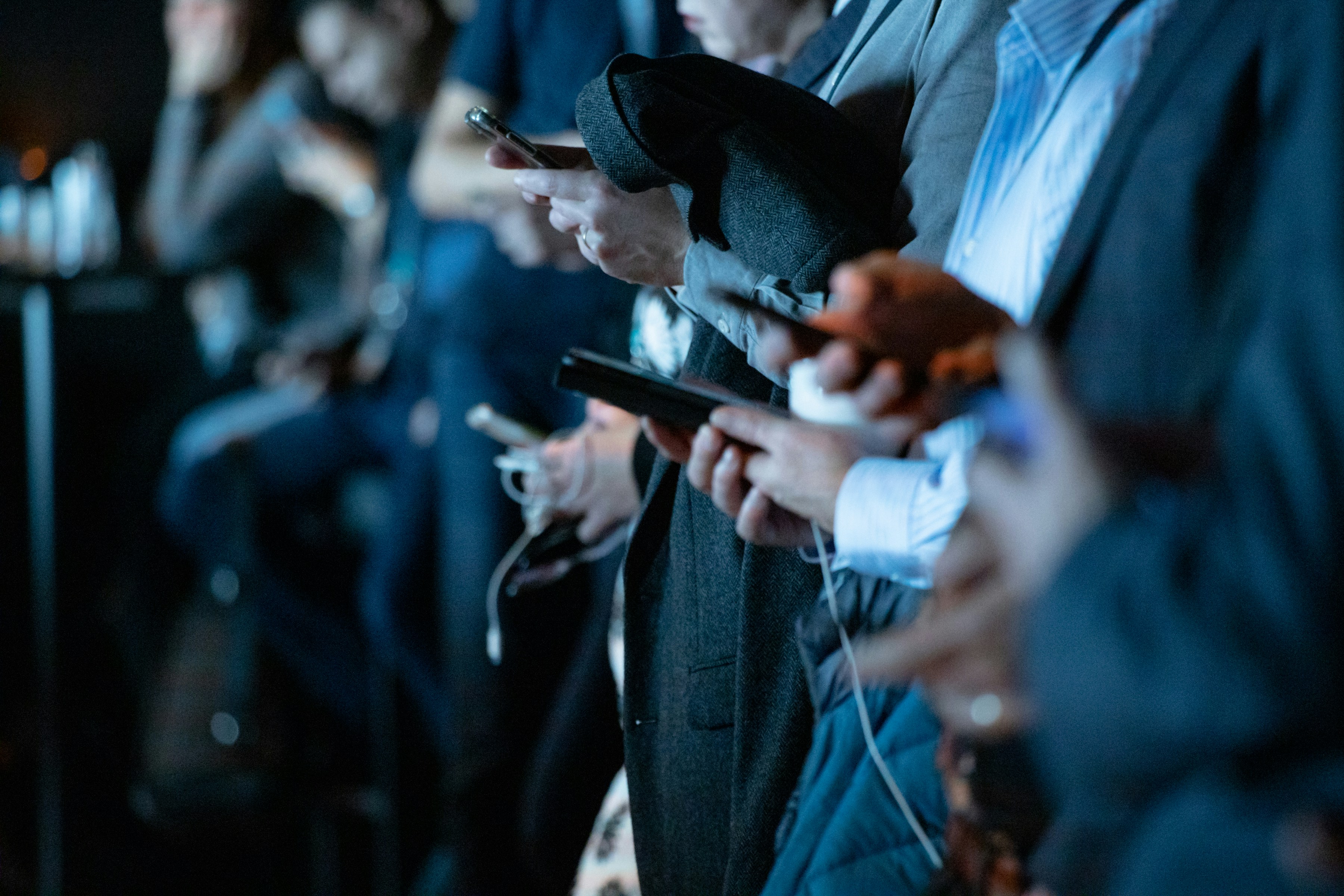302 million people in the United States use social media. These platforms significantly impact on citizens and, therefore, on US politics and democracy. An informed citizenry, one that is able to consciously shape their opinions, is needed for democracy to function well - it allows people to make educated choices at the ballot box. In light of the upcoming 2024 elections, let’s take a step back and examine the impact of social media on US democracy.
Greater access to information
Undeniably, thanks to social media, citizens have greater access to information. Today, 71% of Americans get at least some of their information from social media, and 64% believe that social media has made people in their country more informed about current events. In the past, to find out about events, you had to deliberately turn to the press. Nowadays, you can see posts from government agencies or news channels on your homepage (feed) whenever browsing social media. BBC’s Instagram account, for instance, is followed by 27 million people and viewed by many more.
Social media provided an unprecedented way to spread awareness on specific issues through information campaigns, e.g. those related to #MeToo or Black Lives Matter. During these campaigns, Internet users posted or shared entries from others about a given problem, thus reaching people who would not necessarily reach for a newspaper, history book or scientific report. By June 2020, the hashtag #blacklivesmatter has been used 47.8 million times on Twitter. In numbers: 77% of Americans believe that social media effectively spreads awareness of socio-political issues, 57% of Americans believe that social media campaigns help draw attention to important issues and thanks to social media campaigns a staggering 23% of respondents changed their views.
An example of another important campaign for democracy is mobilization to vote. During each election, famous people and Internet users share information about candidates and voting details. Research shows that online campaigns have a positive impact on voter turnout. During the 2002 elections, 1 million and 4.4 million people registered to vote via Snapchat and Facebook, respectively. Mobilizing even a small number of people to vote is significant because, due to the Electoral College system, winning in even one state can determine the victory of a presidential candidate - George W. Bush famously won against Al. Gore in Florida by 537 votes.
Also, social media offers the unique opportunity to directly contact politicians. In the past, to learn about the activities of the government or parties, you had to read government reports and election programs or watch traditional media. Currently, politicians can continuously report their activities and present them in an accessible way - through graphics, photos or videos. Alexandria Ocasio Cortez remains to be such a popular figure, especially among young people, due to her direct communication with constituents and effective use of the platform. As research proves, direct contact with politicians has a tremendous potential of engaging previously ambivalent people in politics.
Misinformation
With social media comes misinformation. In most traditional media material published has to be accepted by numerous editors, providing a threshold for some credibility. By comparison, on social media, anyone can post whatever they think. In most cases, Facebook and Twitter do not remove false information, but only flag it (unless they directly lead to threats) and after Elon Musk’ takeover of Twitter, an even smaller number of posts are flagged and deleted. It’s unclear exactly how much misinformation there is on social media because new posts are created every second around the world but between March 1 and the November 2016 elections alone, Facebook flagged 180 million posts.
False Information, like any other information, has the enormous power to influence people’s beliefs and behaviors. During the COVID-19 pandemic false information about the virus and vaccines was spread on a massive scale, with social media significantly contributing to vaccine reluctance. Another example is the “stolen 2020 election” conspiracy. Many journalists and political scientists agree that without social media, the former president and his supporters would not have had a way to spread these ideas and carry out such a large attack on the Capitol on January 6, 2021.
Generally speaking, Americans believe in false headlines 75% of the time, and 85% of respondents admit that social media allow for easy manipulation of people. Another challenge is that false information is spread on social media 6 times faster than true information. As Facebook whistleblower Frances Haughen explained, Facebook’s profit motive leads them to prefer having an algorithm, which promotes information that is controversial and shocking because it leads to internet users engaging more with these posts and hence spending more time on social media platforms.
Information bubbles
Social media algorithms are designed so that people see information that confirms their opinions, worsening the problem of disinformation. As Facebook itself explains, “the purpose of the main page (feed) is to show posts that a given person will like”, the same is true on Twitter or Instagram. You hardly ever see criticism of your views and the arguments of the other side, further contributing to confirmation bias.
Misinformation and confirmation bias contributed to the radicalization of QAnon members, who carried out the attack on the Capitol on January 6, 2021. It is on social media that numerous members got exposed to the idea that ‘establishment’ politicians are running an international group of pedophiles, and later saw posts that confirmed what they already believed, radicalizing even more.
In an ideal democracy, citizens would be exposed to the arguments of the “other side” as it allows people to form an opinion on a specific topic.
Manipulation done by electoral campaigns
Social media is a useful tool to effectively manipulate voters during political campaigns. In most countries, including the United States, political parties use social media not only to promote their candidates but also to spread false information about the opposition. Private organizations are hired to create and spread “propaganda posts” (posts with false information about rival candidates) - between January 2019 and November 2020, Facebook and Twitter deleted over 317,000 accounts with such posts.
The case of Cambridge Analytica (CA), the company hired to run the Trump campaign on social media, highlights the dangers of voter manipulation. The company conducted an online survey to collect information about the person completing the form, but also about all their Facebook friends (none of the people consented to sharing their data). Within 3 months the company managed to collect information (“data points”) on about 50 million American citizens. Based on this data, the company developed different personality types.
Knowing what users value or are scared of enabled CA to create personalized advertisements or ads (e.g. about immigration or the economy) so that they could effectively convince specific voters to vote for Trump. The company created 175,000 different versions of Trump’s speeches - each version should have convinced a different type of person. Thanks to data points the company gathered, CA was able to identify undecided voters in “swing states” and target them substantially with negative posts about Hillary Clinton on their feed. Even though CA no longer exists, according to Brittany Kaiser, the company’s former director, companies like CA are widespread and using their services is “natural” in every political campaign.
Such targeted and scientific voter manipulation poses a threat to democracy: arguably, voters are prevented from making independent, informed decisions.
Manipulation done by foreign countries
Similarly, social media allows foreign countries to influence US citizens - a rare opportunity they would not have otherwise. Famously, Russia influenced US citizens during the 2016 presidential campaign. The Russian Internet Research Agency, a troll farm run by the Kremlin, created social media accounts, which promoted posts, for instance about immigration and access to guns, that spread fear and distrust of the government and Hillary Clinton and persuaded people to vote for Trump.
Facebook confirms that between 2014 and 2016, Russian entities created approximately 470 different accounts that were responsible for disseminating approximately 80,000 posts to 126 million Americans - a third of all Americans. During the 2016 presidential campaign, 50,258 accounts related to Russian bots were found on Twitter. These accounts created 3.8 million tweets, which constitute 19% of all tweets about the 2016 presidential election. 80% of these accounts spread information intended to promote Trump using hashtags such as #trump2016 or #neverhillary. Russian trolls identified and targeted journalists susceptible to manipulation with propaganda posts.
Some even, like Kathleen Hall Jamieson, author of “Cyberwar: How Russian Hackers and Trolls Helped Elect a President,” believe that Russian actions very likely tipped the election result towards Trump.
 Photo by Element5 Digital on Unsplash
Photo by Element5 Digital on Unsplash
Thanks to social media the electorate is more informed than ever, allowing voters to consciously shape their views and get engaged with politics. Yet, information bubbles and social media algorithms contribute to misinformation while increasingly voters are effectively manipulated by electoral campaigns and foreign countries. With the enormous benefits and dangerous risks stemming from social media, it is time to put a greater focus on regulation and oversight.
Cover photo by camilo jimenez on Unsplash



